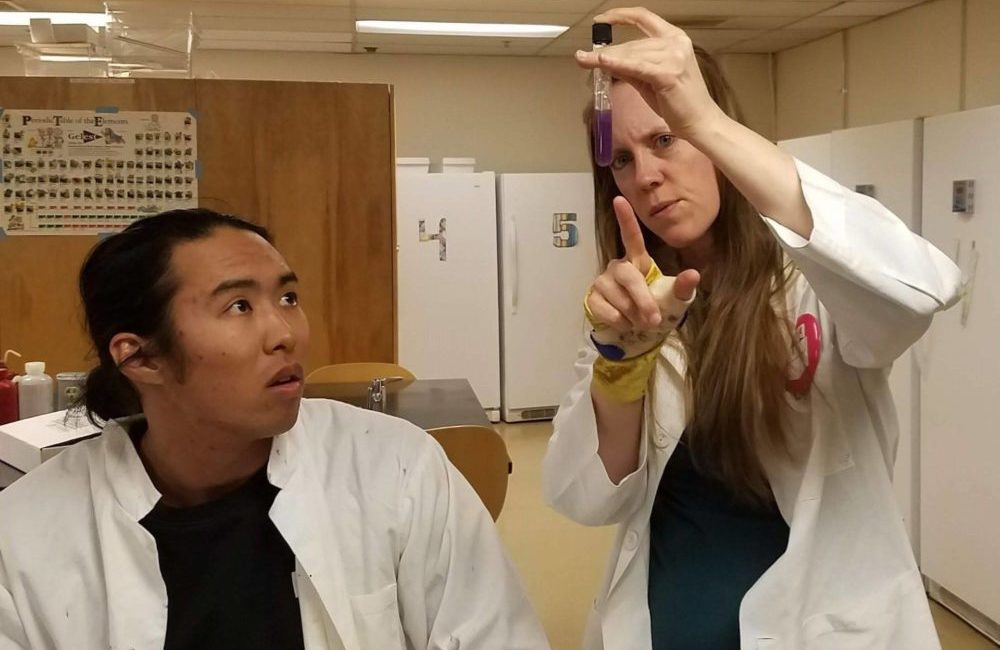
Medora Huseby well remembers what it was like to dig deep as a student to pay for textbooks and other materials.
Huseby, an assistant professor in the Department of Microbiology, Immunology & Pathology in Colorado State University’s College of Veterinary Medicine and Biomedical Sciences, is a big believer in making education affordable for all students. And she knows that isn’t always possible.
“I remember times as a grad student and post-doc when I had to make hard choices,” she said. “I had to read a lot of articles that were behind paywalls on websites – it was so expensive! So, I feel like I know what our students are going through by having to pay for textbooks and other materials.”
One class, $20,000 for books
But it wasn’t until Huseby was teaching a microbiology class for non-majors that it really hit home. The classes were capped at 80 students and they were required to work out of a textbook that cost $250. That’s a total of $20,000 per class for books that very likely were cast aside at the conclusion of the semester.
“I just couldn’t understand having a student who’s a non-major spend that kind of money on a textbook they’ll never use again,” she said.
Honored by governor
And so, Huseby embraced a solution: Colorado’s Open Educational Resources program, which allows free access to textbooks and other academic materials. The program, established by the Colorado legislature in 2018 and promoted by the Colorado Department of Higher Education, allowed her to provide online access to the textbook for free. Students can print it out if they want a hard copy for about $30 – still a considerable savings.
 Gov. Jared Polis followed up by announcing the Zero Textbook Cost Challenge to educators in an effort to reduce textbook costs for college students. The program saved students $3.9 million in 2019-20.
Gov. Jared Polis followed up by announcing the Zero Textbook Cost Challenge to educators in an effort to reduce textbook costs for college students. The program saved students $3.9 million in 2019-20.
Huseby was honored this month by Polis for “Outstanding Z Course,” making her one of six teachers or programs at state colleges and universities to be cited.
Other CSU nominees include Anders Fremstad, assistant professor of economics in the College of Liberal Arts, and James Wilson, assistant professor of mathematics in the College of Natural Sciences. The program is promoted across campus by the office of Mary Pedersen, CSU’s provost.
Spreading the word
For Huseby, the award recognizes a program she highly values. She’s been utilizing OER since 2017 and has helped spread the word about the program to other teachers.
“I think educational recourses should be accessible to everyone,” she said. “My students are so happy when I tell them they don’t have to buy a textbook. I know I’m still paying off my student loans, and I remember times when I really couldn’t afford to buy the textbook. I don’t believe a lack of money should be an obstacle to earning an education.”
Huseby pointed to a recent informal survey taken at CSU that asked students what they would do with the money they saved if they didn’t have to buy textbooks.
“The top two answers were rent and food,” she said. “Can you imagine having to choose between buying a book and paying your rent, or buying food?”
Huseby has adopted OER for all of her classes and is encouraging others in her department to do the same. It’s catching on across campus, she said, but more can be done.
“I’m hoping this award helps people recognize OER and what it can do for students,” she said.